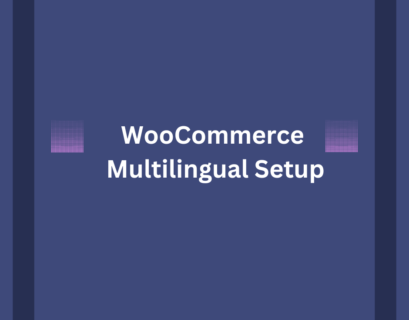WooCommerce vs. Shopify: Choosing the Right E-Commerce Platform
In the ever-expanding world of e-commerce, choosing the right platform for your online store is a critical decision. Two of the most popular options available are WooCommerce and Shopify. While both have their merits, they cater to different needs and preferences. In this in-depth comparison, we’ll explore the strengths and weaknesses of WooCommerce and Shopify to help you make an informed choice for your e-commerce venture.

Understanding WooCommerce

WooCommerce is an open-source e-commerce plugin for WordPress, the world’s most widely used content management system (CMS). Here are some key points to consider:
- Flexibility and Customization
- Ownership and Control
- Cost
- Scalability
- Learning Curve
1. Flexibility and Customization
WooCommerce offers unparalleled flexibility. It seamlessly integrates with WordPress, giving you complete control over your website’s design, content, and functionality. With thousands of free and premium themes and plugins available, you can customize your store to meet your specific requirements.
2. Ownership and Control
With WooCommerce, you have full ownership and control over your online store. You host your website on a web hosting service of your choice, giving you control over the hosting environment, data, and backups. You can also modify the code as needed, making it an excellent choice for developers and businesses that require complete control.
3. Cost
WooCommerce itself is free to use, but you’ll need to budget for web hosting, domain registration, and potentially premium themes and plugins. While this may seem costlier upfront, it can be more cost-effective in the long run, especially for larger businesses.
4. Scalability
WooCommerce is highly scalable, making it suitable for businesses of all sizes. You can start with a small catalog and expand as your business grows. Its flexibility allows you to add features and customize your store to accommodate changing needs.
5. Learning Curve
WooCommerce may have a steeper learning curve, particularly for beginners who are new to WordPress and e-commerce. However, it offers robust documentation and a supportive community to help you navigate the process.
Understanding Shopify
Shopify, on the other hand, is a hosted e-commerce platform that provides an all-in-one solution for building and managing online stores.

1. Ease of Use
Shopify is renowned for its user-friendly interface. It’s an excellent choice for beginners who want to get their online store up and running quickly. You don’t need to worry about managing hosting, security, or updates.
2. Cost
Shopify offers different pricing plans, including a basic plan and advanced options. While it’s easy to get started with its basic plan, costs can add up as you scale your business, as Shopify charges transaction fees unless you use its payment gateway.
3. Customization
While Shopify allows customization to a certain extent, it doesn’t offer the same level of flexibility as WooCommerce and WordPress. You’re limited to the themes and plugins available in the Shopify App Store, which can be restrictive for those with specific design and functionality requirements.
4. Ownership
With Shopify, you’re essentially renting a platform, and your store’s data is hosted on Shopify’s servers. This means you have less control over your website and data compared to WooCommerce.
5. Scalability
Shopify is suitable for businesses of all sizes, from small startups to large enterprises. It’s designed to handle high traffic and sales levels, making it a solid choice for businesses with ambitious growth plans.
Choosing the Right Platform for You
To decide between WooCommerce and Shopify, consider the following factors:
1. Technical Skills
- Choose WooCommerce if you’re comfortable with WordPress and have technical skills or access to a developer.
- Choose Shopify if you prefer a user-friendly, hosted solution and want to avoid technical complexities.
2. Cost
- WooCommerce may offer more cost-effective long-term solutions, especially if you plan to scale.
- Shopify’s pricing is straightforward but may become more expensive as your store grows.
3. Control and Ownership
- Choose WooCommerce if you want complete control, ownership of data, and the ability to customize your store extensively.
- Choose Shopify if you prefer a hands-off approach and are comfortable with Shopify’s hosting and infrastructure.
4. Speed and Ease of Setup
- Shopify is faster to set up and requires minimal technical knowledge.
- WooCommerce takes longer to set up but offers more customization options.
5. Scalability and Growth
- Both platforms can handle scalability, but Shopify may be simpler for those with limited technical expertise.
- WooCommerce provides greater flexibility for larger businesses with unique needs.
6. Support and Resources
- Shopify offers 24/7 customer support, while WooCommerce relies on a community and documentation for support.
Shopify is also an excellent dropshipping platform, offering various extensions and add-ons to help streamline your store. Some of the best Shopify dropshipping add-ons- include:
- Spocket
- Ali Orders AliExpress Dropship
- MIIUT ‑ Unlimited Dropshipping
- CJDropshipping
Additionally, Shopify integrates with third-party dropshipping marketplaces such as AliExpress, Oberlo, and Printify.


















